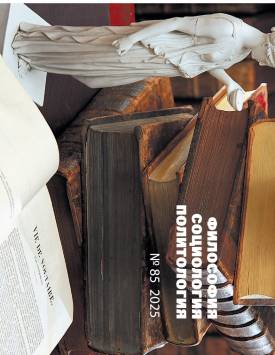Lacunae of the invisible city: the phenomenon of infodenialism
The text is a commentary on the article “Discursive Urbanism: Method Search” by Irina Savchenko. A humanitarian analytics of media communications and the information society is proposed, in which one of the most important tasks of epistemological urbanism is to criticize the negative consequences of digitalization for people and the urban environment. Limitations of scientific and technological optimism, the opposition to information technologies are rooted in history and diagnosed in modernity with the help of the term “infodenialism”. The particular threats of this phenomenon refer to its invisible nature, indistinguishable to the ordinary observer. From this point of view, epistemological urbanism could learn the lesson of the countercultural critique of industrial capitalism, the information society, and the knowledge society. Intellectualism is necessary, but its power is uncomfortable. Artificial intelligence and information networks today demonstrate not only limited value, but also obvious threats. In this context, the phenomenon of the invisible “ambiente” (Spanish: atmosphere, setting) comes to the fore - the traditional comfortable urban environment, the right to which must be defended today. The author declares no conflicts of interests.
Keywords
transstructural approach, humanitarian analytics, epistemological urbanism, “knowledge society”, infodenialism, countercultureAuthors
| Name | Organization | |
| Kasavin Ilya T. | Institute of Sociology of the Federal Center of Theoretical and Applied Sociology of the Russian Academy of Sciences | itkasavin@gmail.com |
References

Lacunae of the invisible city: the phenomenon of infodenialism | Tomsk State University Journal of Philosophy, Sociology and Political Science. 2025. № 85. DOI: 10.17223/1998863X/85/23
